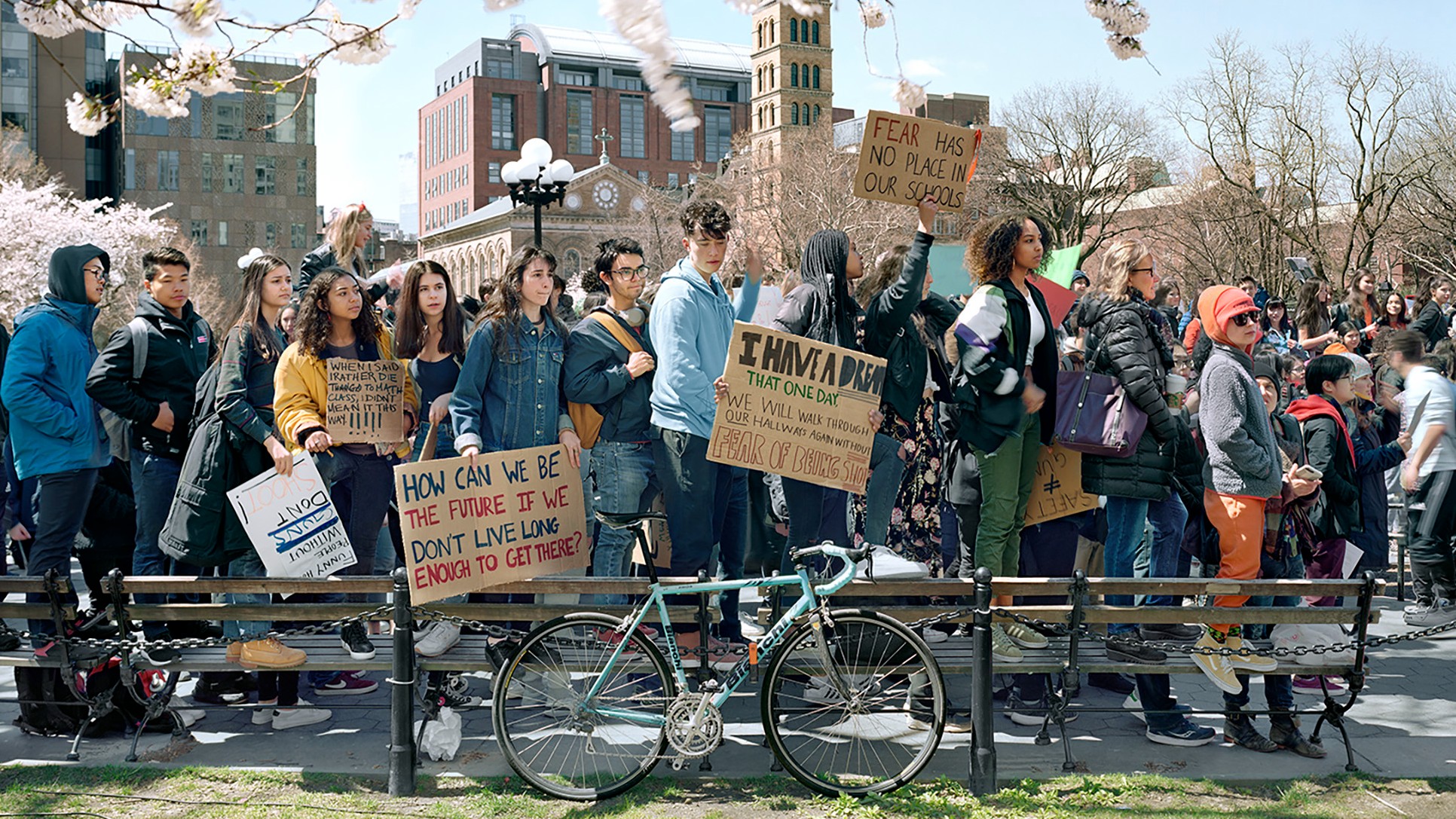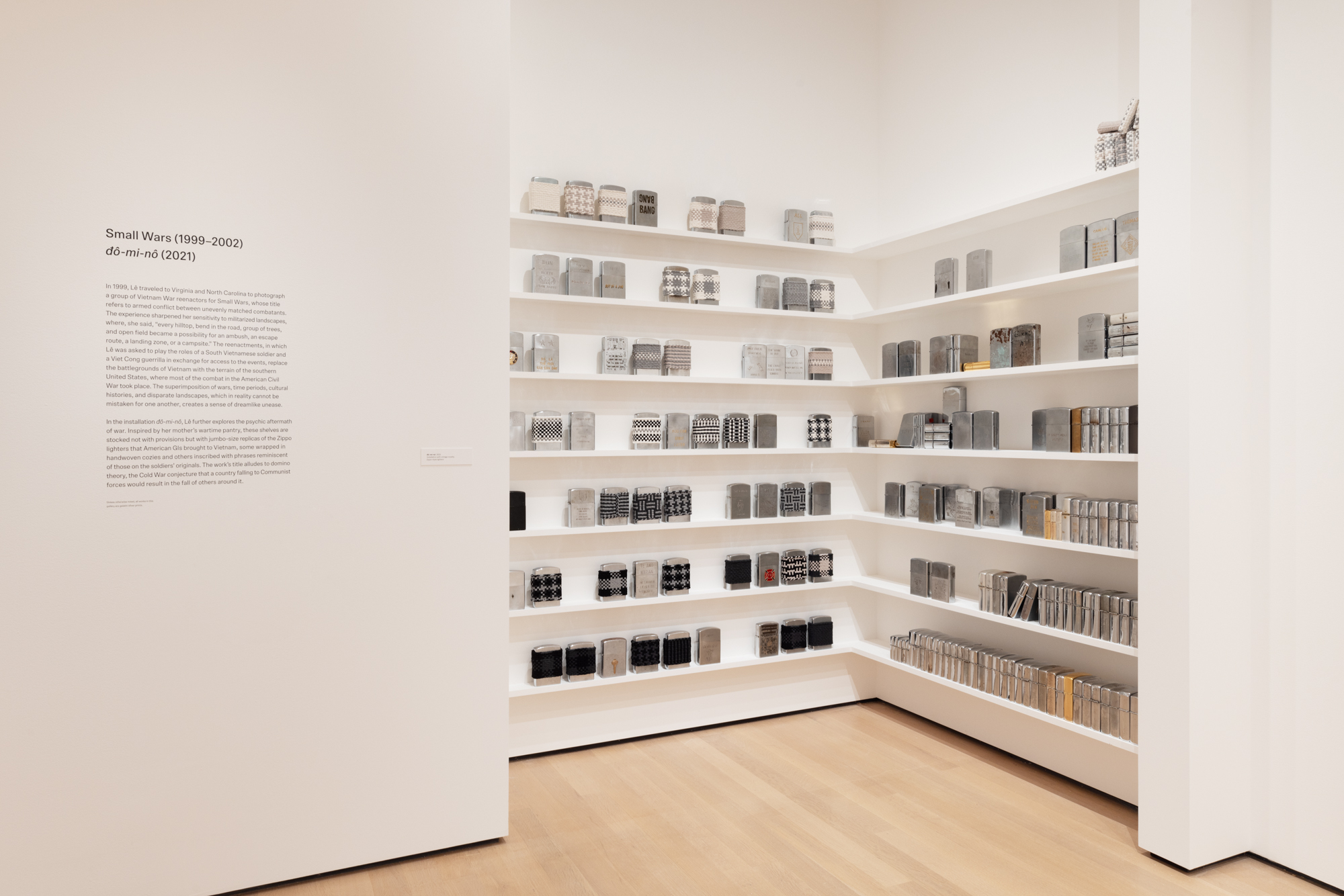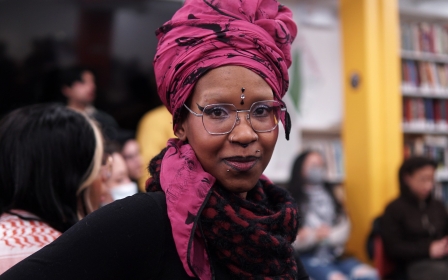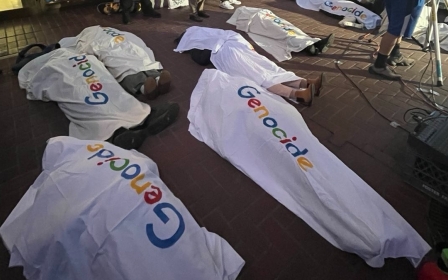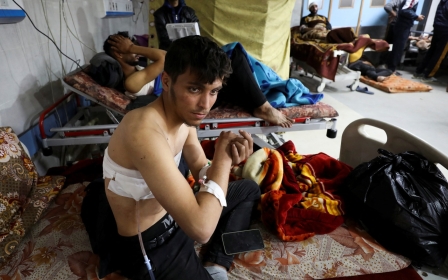Has the Museum of Modern Art in New York City banned keffiyehs?
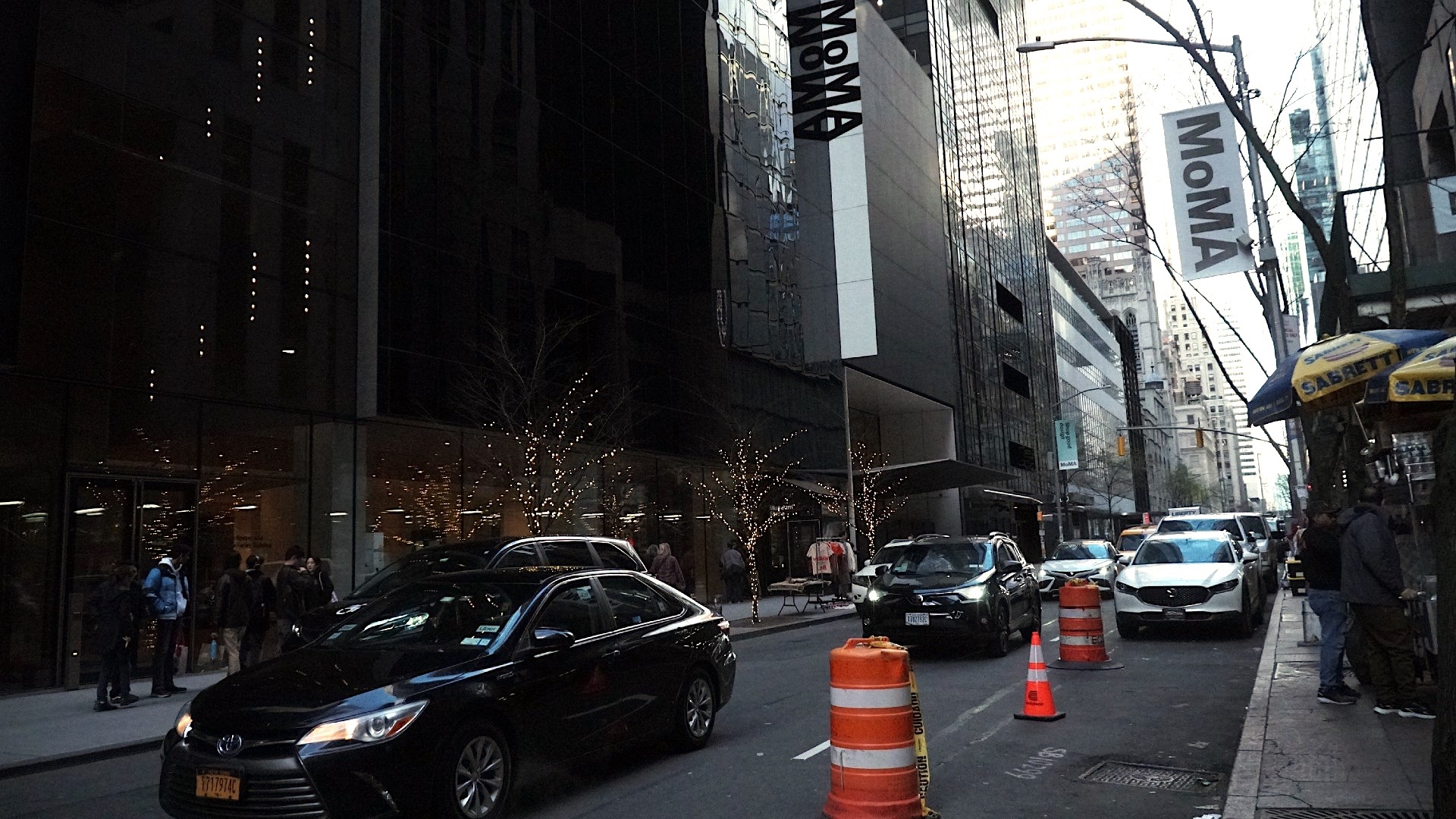
Ju-Hyun Park was going through the visitor's line inside the Museum of Modern Art (MoMA) in New York last Saturday when a security guard conducting a bag search pointed at the keffiyeh folded inside the totebag.
The security guard said he wasn't sure if the black and white kefiyyeh, embroidered with the Palestinian flag, would be allowed in.
He motioned to a manager who then confirmed that Park wouldn't be allowed in with the scarf.
"They told me I can't carry it in. They said I needed to dispose of it," Park, an independent writer and editor, told Middle East Eye.
"The manager and security staff didn't explain why," Park added.
New MEE newsletter: Jerusalem Dispatch
Sign up to get the latest insights and analysis on Israel-Palestine, alongside Turkey Unpacked and other MEE newsletters
Park, who was accompanied by their friend Phuong, who was visiting from California, said they were so surprised by the incident and didn't want to make a scene, so they left.
"I am not so upset about this for my sake. I am more disturbed by the implication of what this says about the museum. It says to me that the policy is fundamentally anti-Palestinian and profoundly racist," Park said.
The keffiyeh is a traditional head covering worn by men in the Arab world, and the black and white chequered version of it has for decades been seen as a symbol of Palestine, also famously worn by Yasser Arafat, the leader of the Palestine Liberation Organisation and the Palestinian National Authority.
"Whether it was the keffiyeh or the Palestinian flag embroidered on it, something about either of those things was considered to be not welcomed in the museum space. But these are not just symbols of a people, but a people who are currently and actively facing genocide and have been living under colonial rule for decades.
"I interpret that as supporting the logic of the genocide that is unfolding, Park added.
MoMA did not reply to MEE's multiple requests for comment and clarity on the incident.
The incident at MoMA comes as Palestinian groups describe an unprecedented rise in cases of repression against people advocating for Palestine in the US.
In February, Palestine Legal said it had received more than 1,300 reports of such cases since 7 October, when the war on Gaza broke out after the Hamas-led attacks on southern Israel.
Just days before the incident in New York, the Museum of Science and Technology in Sacramento, California, banned its employees from wearing the keffiyeh, along with all political symbols, at work.
According to employee testimony, the museum initiated the new policy after several employees wore the keffiyeh in solidarity with a colleague who was told not to wear it at work after an Israeli board member submitted a complaint about it.
MoMA itself has been a site of protest over its refusal to call for a ceasefire as well as cut ties with board members with visible ties to weapons companies or groups helping facilitate what activists and human rights advocates say is an "ongoing genocide" in Gaza.
In February, more than two dozen employees at MoMa signed a letter, along with more than 50 other culture workers and artists, urging the institution to call for an “unconditional ceasefire” in Gaza.
“Working amidst the profound silence of our institution in the face of the ongoing crisis in Gaza has become increasingly challenging for us as employees of The Museum of Modern Art,” the letter said.
“The credibility and sincerity of our international purview is incomplete and compromised as we quietly watch Gaza’s invaluable art, culture, and history (15th century BCE), be systematically destroyed, stolen, and erased. We respectfully urge our institution to consider the impact of its silence,” the letter added.
Hundreds of protesters and artists also conducted a sit-in at MoMA and called for “the immediate removal of board members with direct ties to genocide, apartheid and settler colonialism”.
Protesters singled out MoMA trustee, Paula Crown. The Crown family owns 10 percent of weapons contractor General Dynamics. Organisers said that General Dynamics manufactures the MK-84 bombs that Israel has dropped on Gaza.
The protesters also targeted MoMA's board’s honorary chair, Ronald Lauder, who heads the World Jewish Congress.
"Jews are being slaughtered for one reason. Because they are Jews," Lauder said in a video following the attack on Israel on 7 October, which resulted in around 1,200 Israelis being killed and over 200 taken back to Gaza as hostages.
The World Jewish Congress has subsequently condemned the recent International Criminal Justitice (ICJ) court ruling that Israel may be committing genocide.
According to the latest statistics available, more than 31,000 Palestinians have been killed by Israel since the war broke out.
Park, who was denied entry to MoMA on Saturday, said the irony is that they had made their way to the museum to visit an exhibit on militarism, titled "Between Two Rivers", by Vietnamese photographer An-My Lê.
"The reason we went to the museum is because my friend wanted to see an exhibit that was meant to be an interrogation of militarism," Park said.
According to the description of the exhibit on MoMA's website, "the photographs of An-My Lê have engaged the complex fictions that inform how we justify, represent, and mythologize warfare and other forms of conflict".
In their determination to see the exhibit, Park and Phuong said they returned to the museum later on Saturday afternoon with the kefiyyeh hidden under Phuong's shirt.
The security guards checked their bags once more and allowed them through.
Park's friend Phuong, who asked to be identified by their first name only, described the entire incident as disheartening.
"As a creative, I know that all art is political. As an institution to be straying away from calling for a ceasefire is just cowardly, Phuong told MEE.
Reacting to their experience at MoMA, the Palestine Youth Movement (PYM) described it as a "blatant act of discrimination".
"We know that MoMA counts war profiteers and genocide enablers among its trustees, some of whom own companies that sell weapons directly to Israel," Munir, an organiser with the PYM, told MEE.
"As over 30,000 Palestinians have been killed by these weapons, MoMA has been shamefully silent about their complicity. This latest act of prejudice speaks to the corruption at the very core of this institution," Munir, who only offered his first name, said.
Middle East Eye delivers independent and unrivalled coverage and analysis of the Middle East, North Africa and beyond. To learn more about republishing this content and the associated fees, please fill out this form. More about MEE can be found here.


